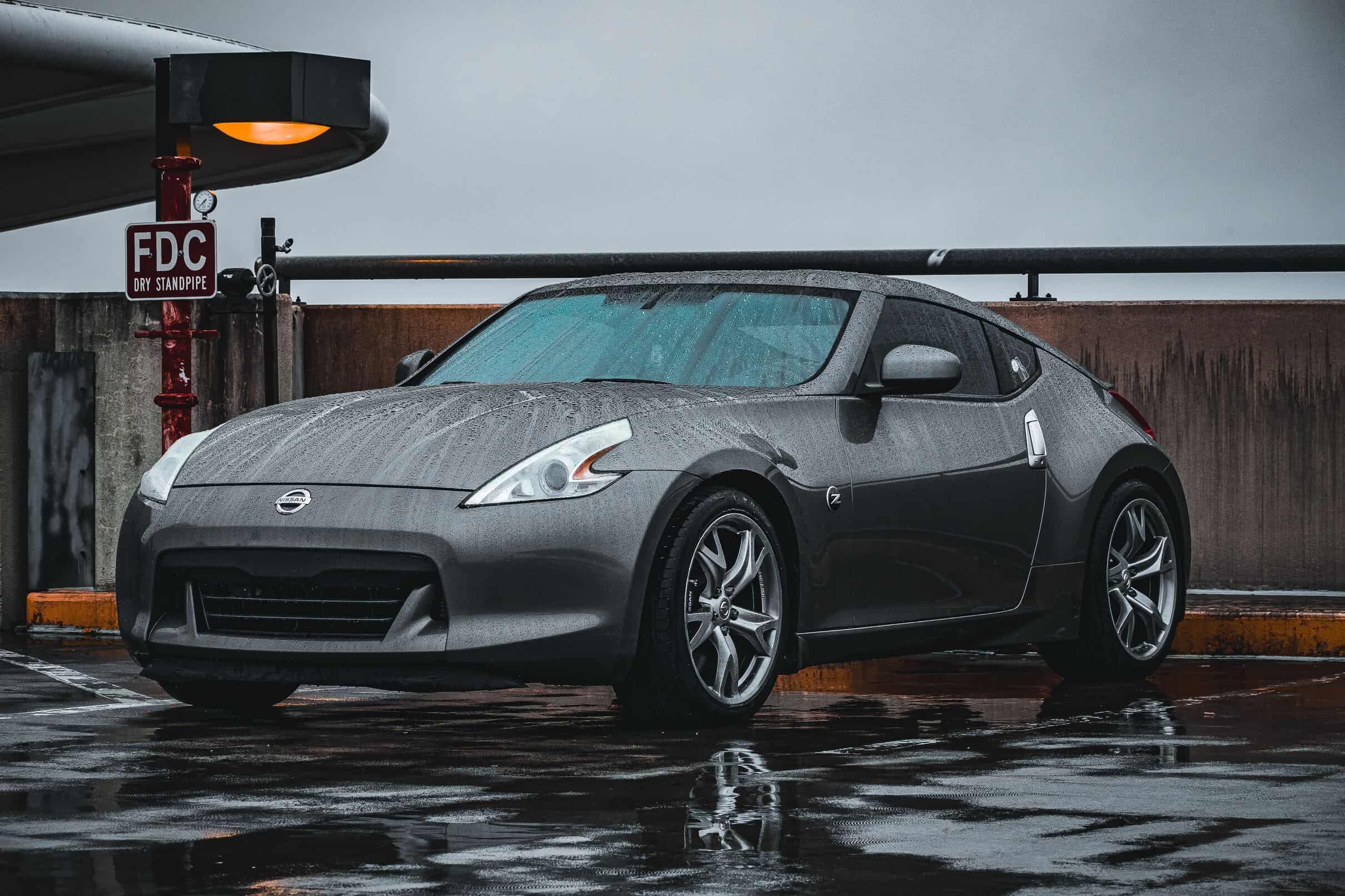Introduction
When it comes to the world of automobiles, the Audi R8 and Nissan 370Z stand as benchmarks of automotive engineering, each representing a unique blend of performance, style, and affordability. In the arena of car comparisons, the juxtaposition of these two iconic vehicles, particularly concerning the aspects of price over style, unveils an intriguing narrative that revolves around engine prowess, interior allure, overall cost, fuel efficiency, and maintenance expenses.

Engine Size and Car Stats
Let’s kick off with the heart of these beasts—the engines. The Audi R8, a quintessential supercar, flaunts a potent V10 engine, boasting displacements ranging from 5.2 to 5.3 litres depending on the model year. This powerhouse generates an impressive horsepower, typically ranging from 532 to 602 HP, ensuring adrenaline-pumping acceleration and a spine-tingling exhaust note.
In contrast, the Nissan 370Z, while not as mighty in displacement, is equipped with a formidable 3.7-liter V6 engine. This engine produces a commendable output, typically around 332 horsepower, delivering a thrilling performance that’s synonymous with the Z series.
Interior Space and Style
Transitioning to the interiors, the Audi R8 exudes opulence and sophistication. Its cabin is a testament to Audi’s commitment to luxury, featuring high-quality materials, cutting-edge technology, and an ergonomic design that embraces the driver. However, being a supercar, the R8 might compromise slightly on spaciousness for the sake of its sporty design.
On the other hand, the Nissan 370Z boasts a more compact yet functional interior. While it may not rival the R8 in terms of luxury, it compensates with a driver-centric cockpit layout, emphasising practicality and accessibility. However, due to its nature as a sports car, the 370Z might feel more confined compared to the R8.
Overall Cost

The cost aspect significantly differentiates these two vehicles. The Audi R8, being a high-end supercar, commands a substantially higher price tag compared to the Nissan 370Z. In the UK market, the R8’s starting price typically exceeds £100,000, varying based on the model year and trim, whereas the 370Z, with its more affordable pricing strategy, usually starts at around £30,000.
Fuel Economy
Fuel efficiency, often a crucial factor for many buyers, diverges widely between these cars. The Audi R8, owing to its powerful engine and performance-oriented design, tends to consume more fuel. Its thirst for gasoline can result in a lower fuel economy, especially during spirited driving.
Conversely, the Nissan 370Z, while not classified as a fuel-sipping car, offers relatively better fuel efficiency compared to the R8, making it a more viable option for daily commuting and longer trips.
Cost to Maintain
When it comes to maintenance expenses, the Audi R8’s intricate engineering and premium components translate into higher maintenance costs. Servicing a high-performance vehicle like the R8 requires specialised attention and often incurs substantial expenses, especially for parts and routine maintenance.
Contrarily, the Nissan 370Z, designed with a more straightforward approach, tends to have lower maintenance costs, making it a more budget-friendly option in terms of long-term ownership.
Finance options for vehicles like the Audi R8 and Nissan 370Z often vary based on several factors including the buyer’s financial situation, credit history, and dealership or lender offers available at the time of purchase. Here’s a breakdown of common finance options applicable to both these cars:
Loans and Financing:

- Traditional Auto Loans: These loans are offered by banks, credit unions, or financial institutions. They involve borrowing a specific amount to purchase the vehicle and paying it back over time with interest. Interest rates depend on the buyer’s credit score and the lender’s terms.
- Dealership Financing: Car dealerships often have relationships with multiple lenders. They can offer financing options directly to buyers. While convenient, the rates might be less competitive compared to what a buyer could get from their own bank or credit union.
Lease Options:
Car Leasing: Leasing a car involves paying for the use of the vehicle over a set period, usually 2-4 years. Lease payments are typically lower than loan payments as they cover the vehicle’s depreciation during the lease term. However, there are mileage restrictions and wear-and-tear clauses to consider.
Special Financing Programs:
Manufacturer Financing Deals: Sometimes, car manufacturers offer special financing deals or incentives like low or zero-percent APR for a limited time. These can be available for specific models or during promotional periods.
Considerations for Audi R8 and Nissan 370Z:
Audi R8 Financing: Financing an Audi R8 might involve higher loan amounts due to its premium price. Audi Financial Services often provide financing options tailored to the buyer’s needs, potentially offering competitive rates for qualified buyers.
- Nissan 370Z Financing: Financing for the 370Z might offer more flexibility due to its lower starting price. Nissan Motor Acceptance Corporation (NMAC) typically provides financing options for Nissan vehicles, which can include various loan terms and APRs.
Things to Keep in Mind:

- Credit Score: Your credit score plays a significant role in determining the interest rate you’ll receive. A higher credit score usually leads to more favourable rates. However, bad credit car finance options are always available.
- Down Payment: A larger down payment can reduce monthly payments and overall interest costs. It might be required for lower credit scores or high-value vehicles.
- Negotiation: Buyers can negotiate the financing terms, including the interest rate, loan term, and even potential manufacturer incentives.
Before settling on a finance option, it’s advisable to compare offers from different lenders or dealerships, understand all terms and conditions, and calculate the overall cost including interest and fees. Each financing option has its pros and cons, and the best choice depends on the buyer’s financial situation and preferences.
Conclusion
The Audi R8 and Nissan 370Z, though belonging to different segments in the automotive spectrum, offer distinctive propositions to potential buyers. The R8 entices with its unparalleled performance, luxurious interiors, and iconic status but comes at a premium price and higher ownership expenses. On the flip side, the 370Z charms with its more accessible pricing, practicality, and comparatively lower running costs, albeit with a less opulent interior and slightly less breath-taking performance. Ultimately, the choice between these two remarkable cars boils down to individual preferences, where the balance between style and price plays a pivotal role in the decision-making process.
Choose My Cars top pick out of these two beasts, has to be the Audi R8! The raw power, comfort and signature Audi paint and overall style just take it over the edge. However, both manufactures offer some amazing used cars for every type of driver.





